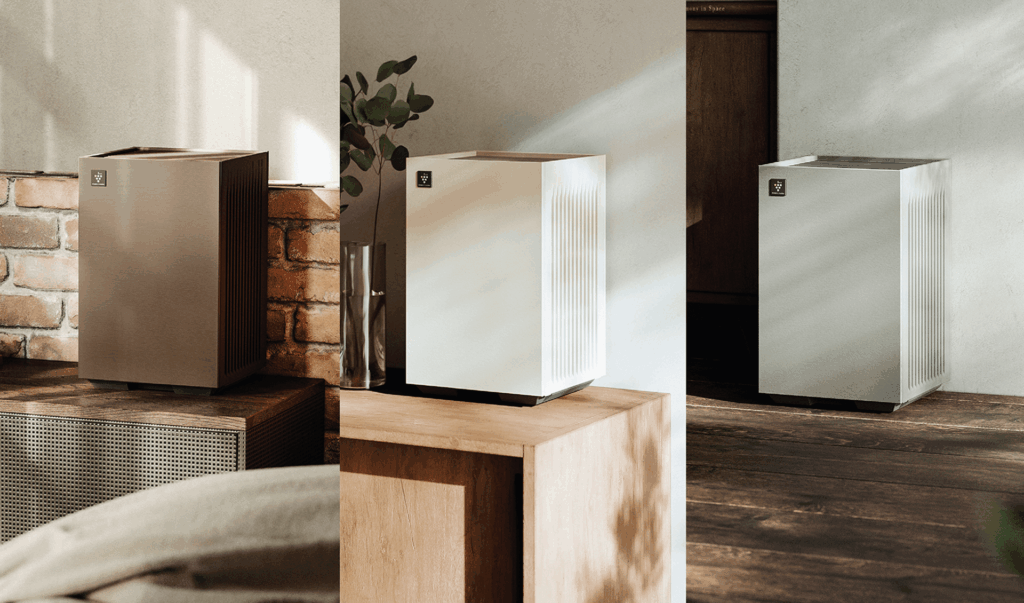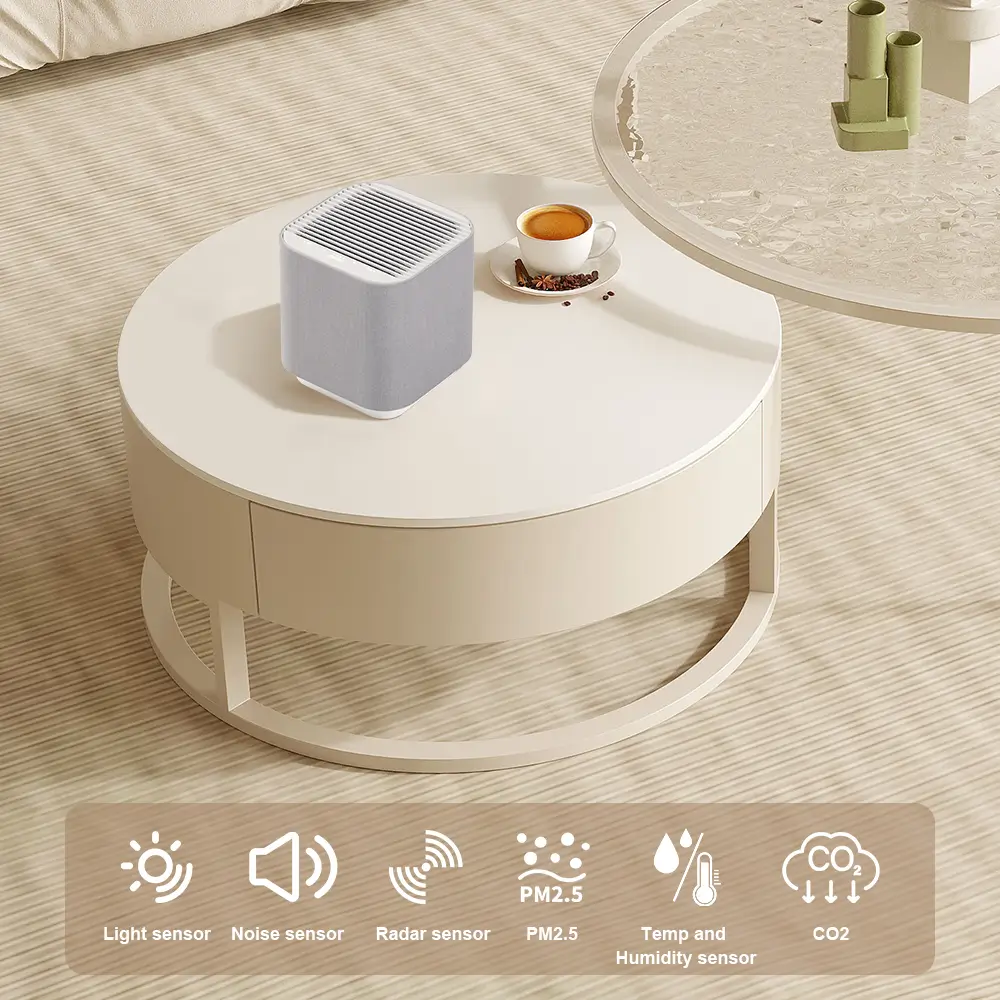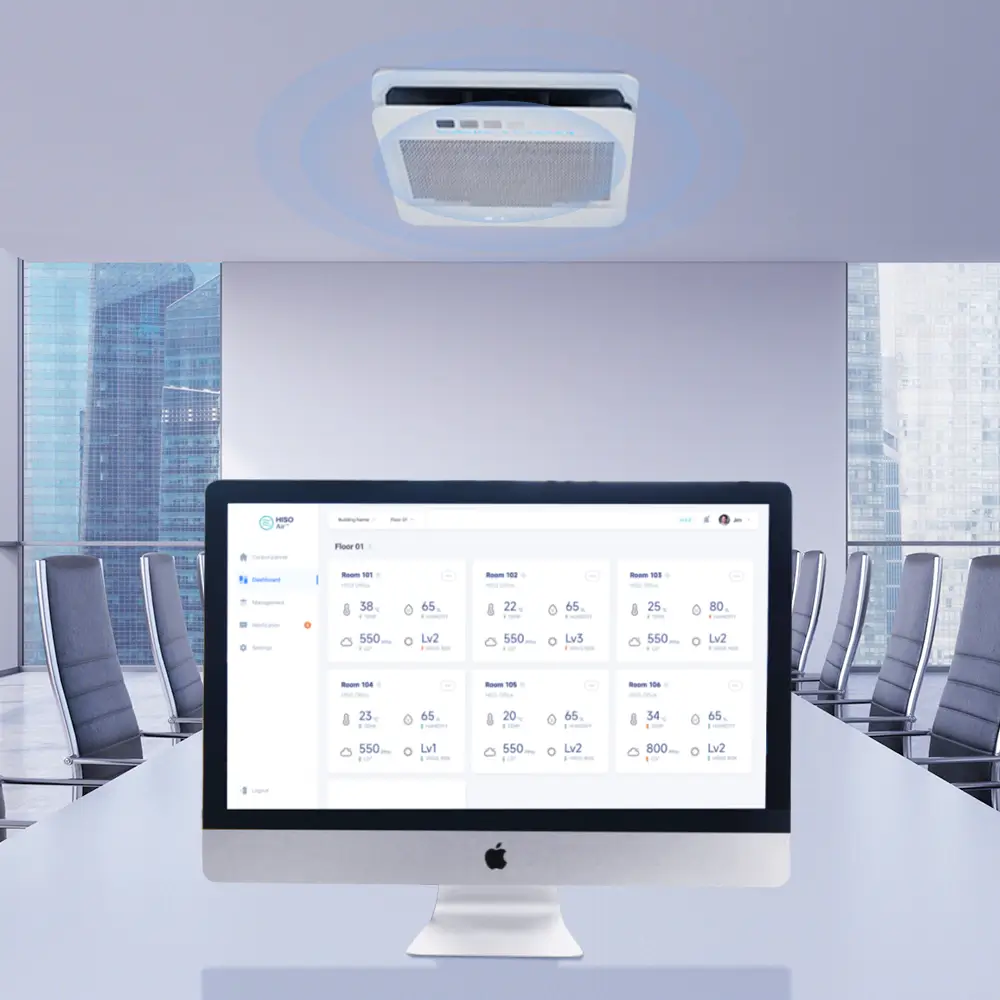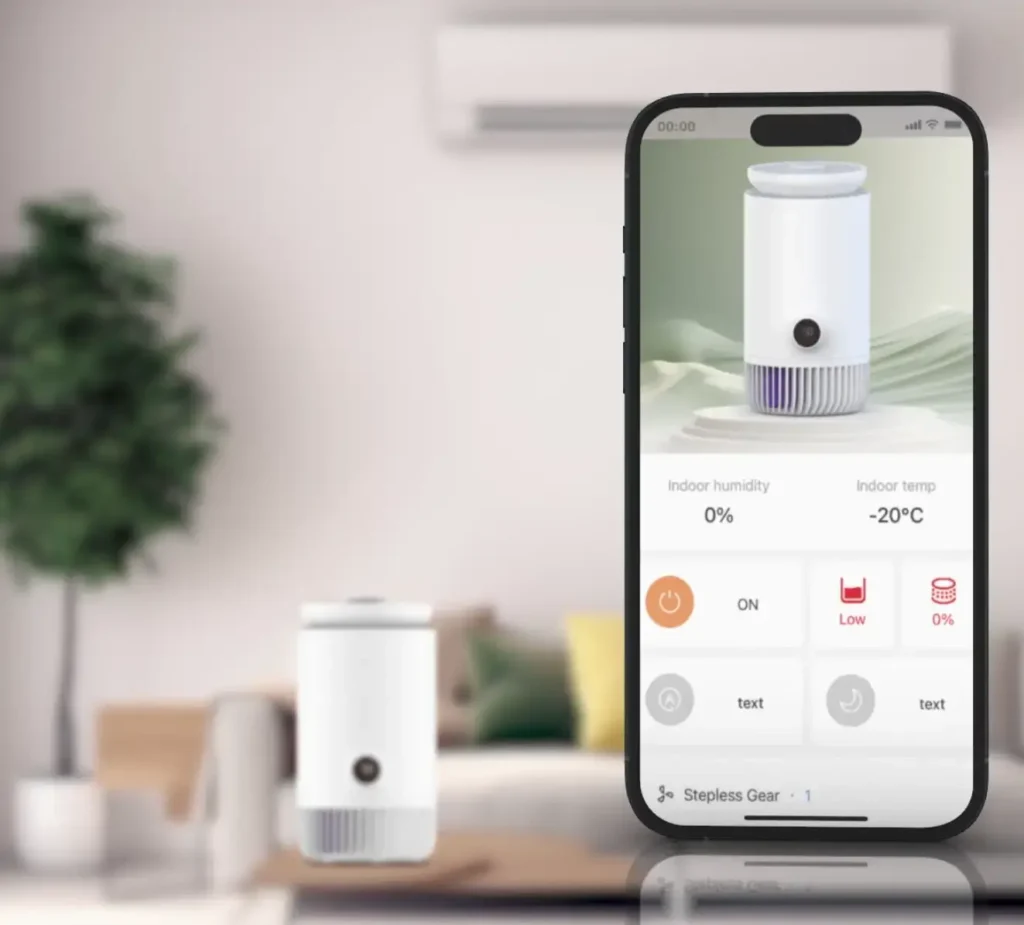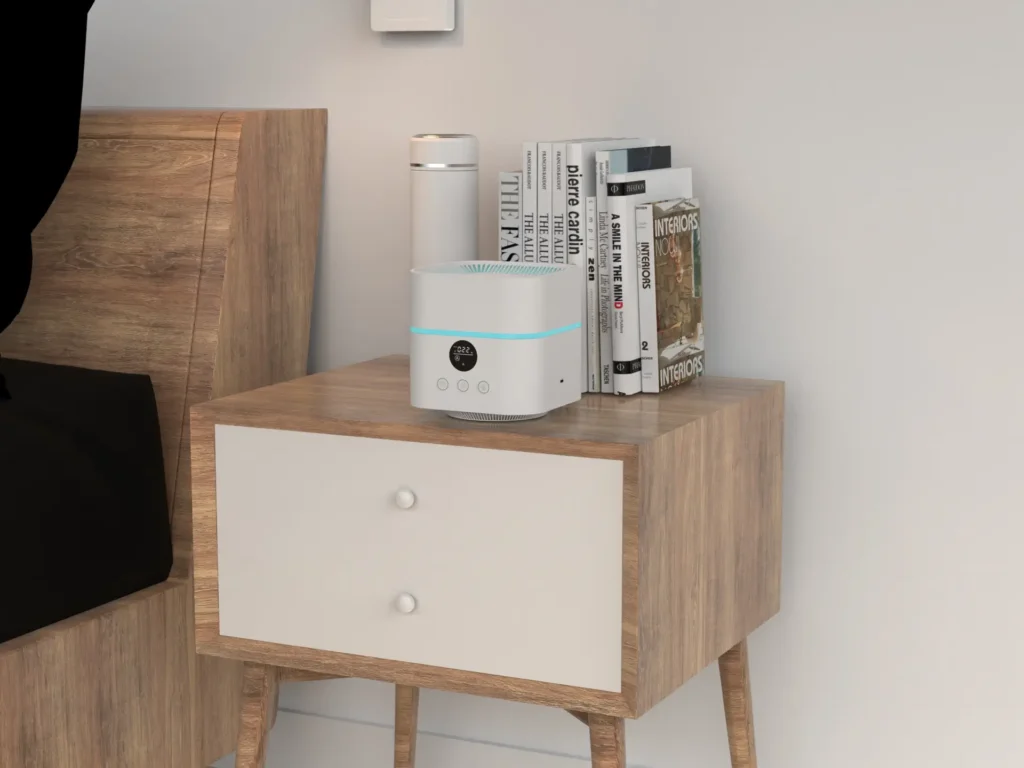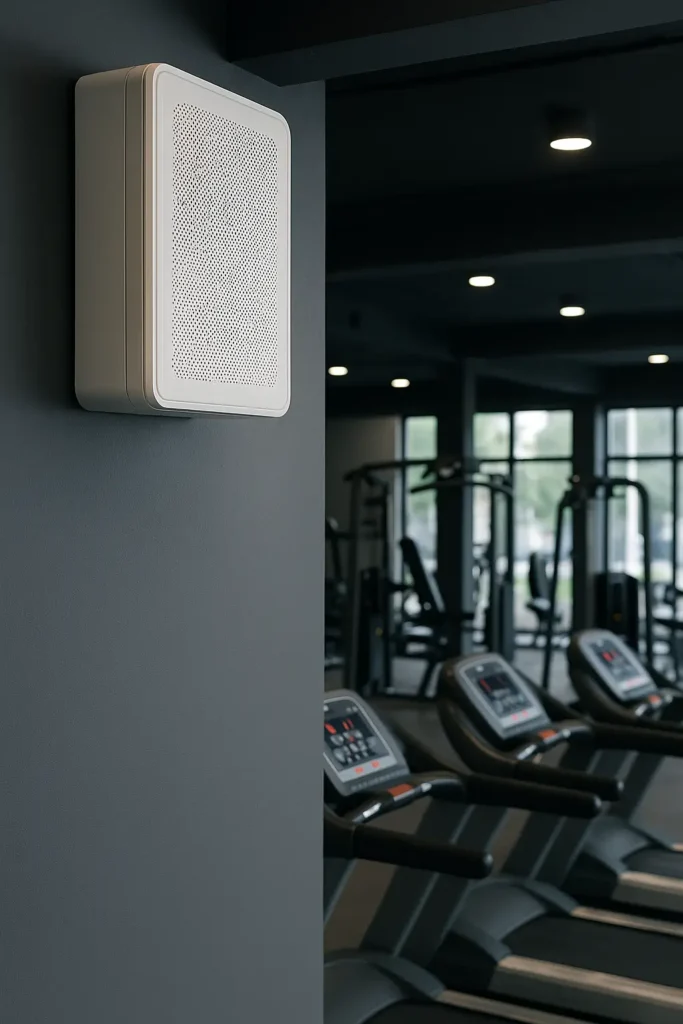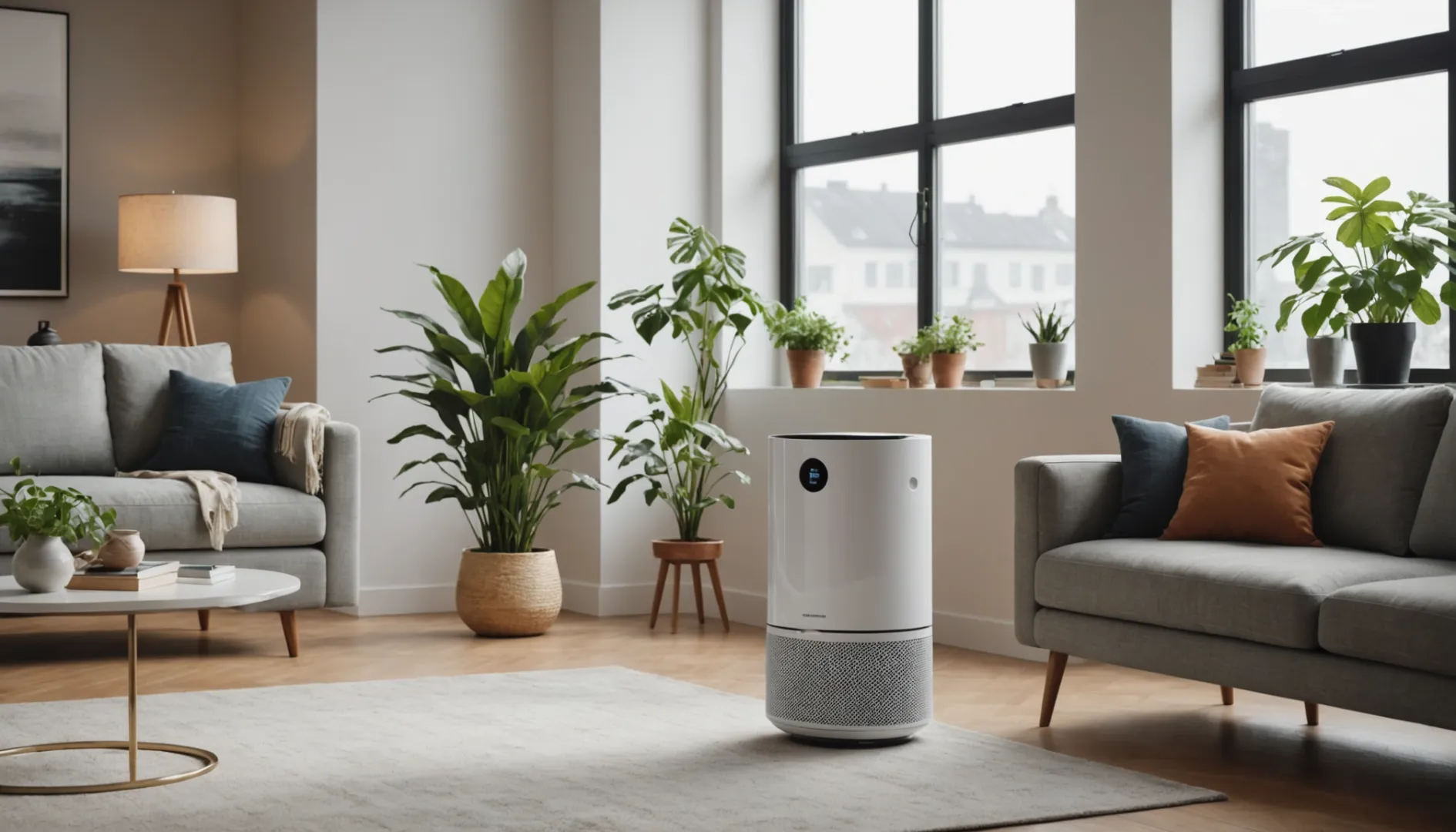
완벽한 공기청정기를 찾는 것이 부담스럽게 느껴질 수 있지만, 꼭 그럴 필요는 없습니다!
신뢰할 수 있는 공기청정기 제조업체를 선택할 때 고려해야 할 5가지 핵심 요소는 공기 정화 기술에 대한 전문성, 맞춤형 기능, 품질 표준에 대한 헌신, 첨단 기술 및 혁신, 투명한 커뮤니케이션 및 지원입니다.
이러한 주요 요소를 이해하는 것은 탄탄한 기초를 제공하지만, 각 측면을 더 자세히 살펴보면 의사 결정 과정을 크게 향상시킬 수 있습니다. 이러한 요소가 어떻게 상호 작용하여 필요에 가장 적합한 제조업체를 식별하는 데 도움이 되는지 알아보려면 계속 읽어보세요.
공기 정화 기술에 대한 전문 지식이 더 나은 제품 품질을 보장합니다.True
전문성을 갖춘 제조업체는 필요에 맞는 고품질의 효율적인 공기청정기를 제공합니다.
공기 정화 기술에 대한 전문성이 제조업체 선택에 어떤 영향을 미치나요?
공기 정화 기술에 대한 전문성은 제조업체를 선택할 때 효과적이고 혁신적인 솔루션을 보장하는 핵심 요소입니다.
공기 정화 기술에 대한 전문 지식은 특정 환경과 요구 사항에 대한 공기 청정기의 품질, 효율성 및 적합성을 결정하여 제조업체 선택에 큰 영향을 미칩니다.
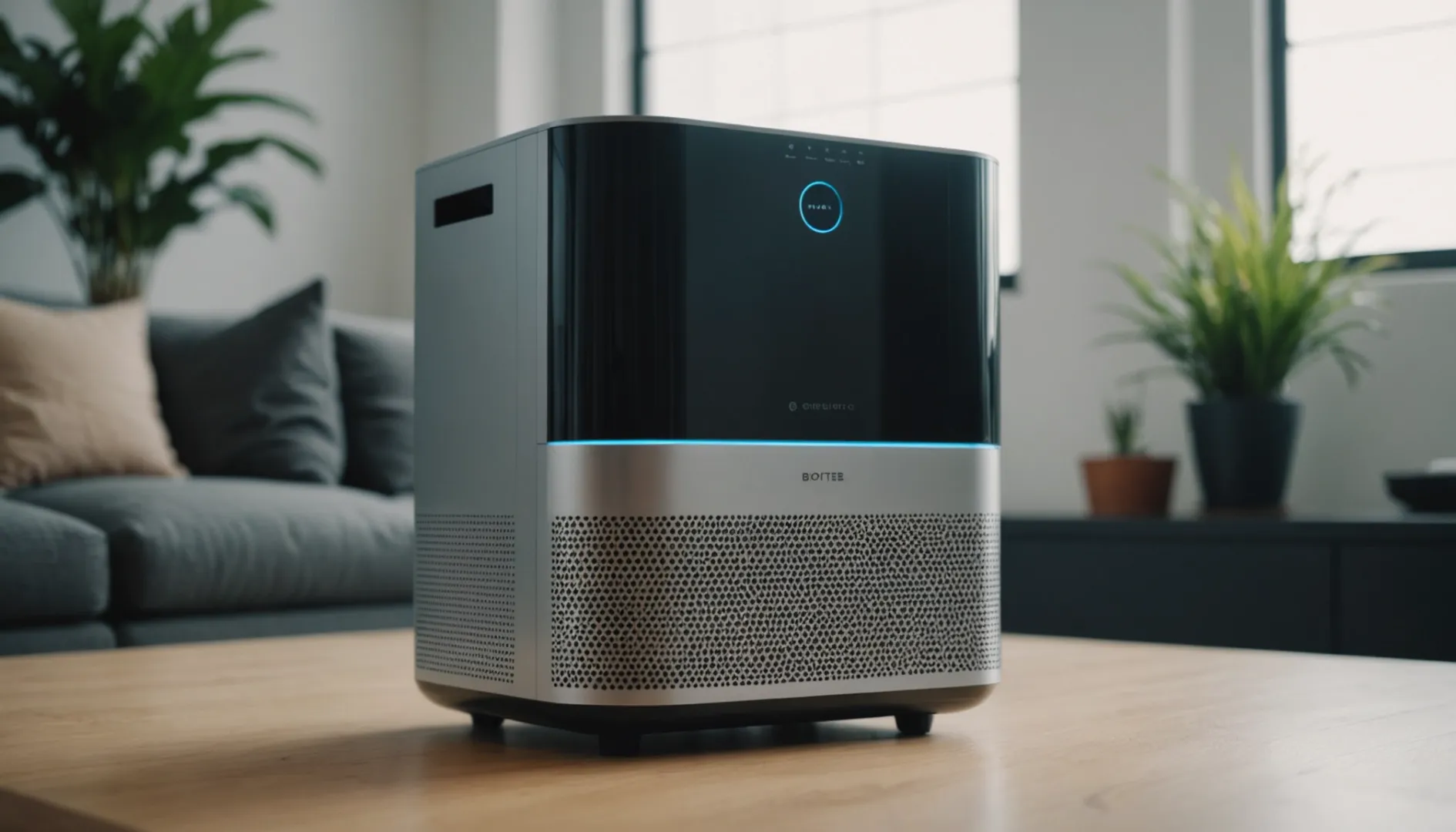
필터링 기술 이해
전문 제조업체는 HEPA, 활성탄, 정전기 및 UV-C 필터와 같은 다양한 여과 기술에 대한 포괄적인 지식을 보유하고 있습니다. 각 유형마다 뚜렷한 이점이 있습니다: HEPA 필터는 0.3마이크론의 작은 입자를 걸러내는 반면 활성탄은 냄새 제거에 탁월합니다. 이러한 기술 노하우를 바탕으로 제조업체는 다음과 같은 다양한 요구사항에 가장 적합한 필터를 추천할 수 있습니다. 주거용1 공백을 의료2 시설.
고급 기능과 그 중요성
전문성을 갖춘 제조업체는 소음 감소 기술 및 IoT 지원 모니터링과 같은 고급 기능을 통합할 수 있습니다. 정숙성이 중요한 가정이나 사무실 공기청정기의 경우 소음 감소는 매우 중요합니다. IoT 기능을 통해 사용자는 공기질을 원격으로 모니터링하고 제어할 수 있어 편리하고 안심할 수 있습니다.
다단계 여과 시스템의 영향
노련한 제조업체는 다음과 같은 광범위한 오염 물질을 걸러내는 다단계 필터링 시스템을 제안할 수 있습니다. VOC (휘발성 유기 화합물). 이 접근 방식은 공기질을 개선할 뿐만 아니라 단일 여과 단계의 부담을 줄여 공기청정기의 수명을 연장합니다.
| 기능 | 중요성 |
|---|---|
| 노이즈 감소 | 조용한 환경에 필수 |
| IoT 모니터링 | 원격 제어 및 데이터 추적 가능 |
| 다단계 필터링 | 더 다양한 오염 물질을 캡처합니다. |
사용자 지정에 대한 전문성
전문성은 필터를 이해하는 것뿐만 아니라 솔루션을 맞춤화하는 것까지 포함합니다. 공기 정화에 정통한 제조업체는 고객의 특정 요구 사항에 맞게 제품을 맞춤화하여 최적의 성능을 보장할 수 있습니다. 예를 들어 꽃가루가 많은 환경이나 산업 오염 물질이 많은 환경에 맞게 여과 메커니즘을 조정할 수 있습니다.
이러한 측면에 집중함으로써 공기 정화 기술에 대한 전문성은 단순히 제조업체 선택에만 영향을 미치는 것이 아니라 장기적인 성공과 선택에 대한 만족도를 결정합니다.
HEPA 필터는 0.3마이크론 크기의 입자를 걸러냅니다.True
HEPA 필터는 작은 입자를 포집하여 공기질을 개선하는 것으로 잘 알려져 있습니다.
공기청정기에는 IoT 모니터링이 필요하지 않습니다.False
IoT 모니터링을 통해 사용자는 공기질을 원격으로 추적하고 제어할 수 있어 편리함을 더합니다.
공기청정기 제조에서 커스터마이징과 유연성이 중요한 이유는 무엇인가요?
진화하는 공기 정화의 세계에서 사용자 지정과 유연성은 혁신의 기둥으로 자리 잡고 있습니다.
공기청정기 제조의 맞춤화와 유연성을 통해 특정 시장의 요구를 충족하고 성능을 향상시키며 사용자 선호도에 맞춘 첨단 기술을 통합할 수 있습니다.
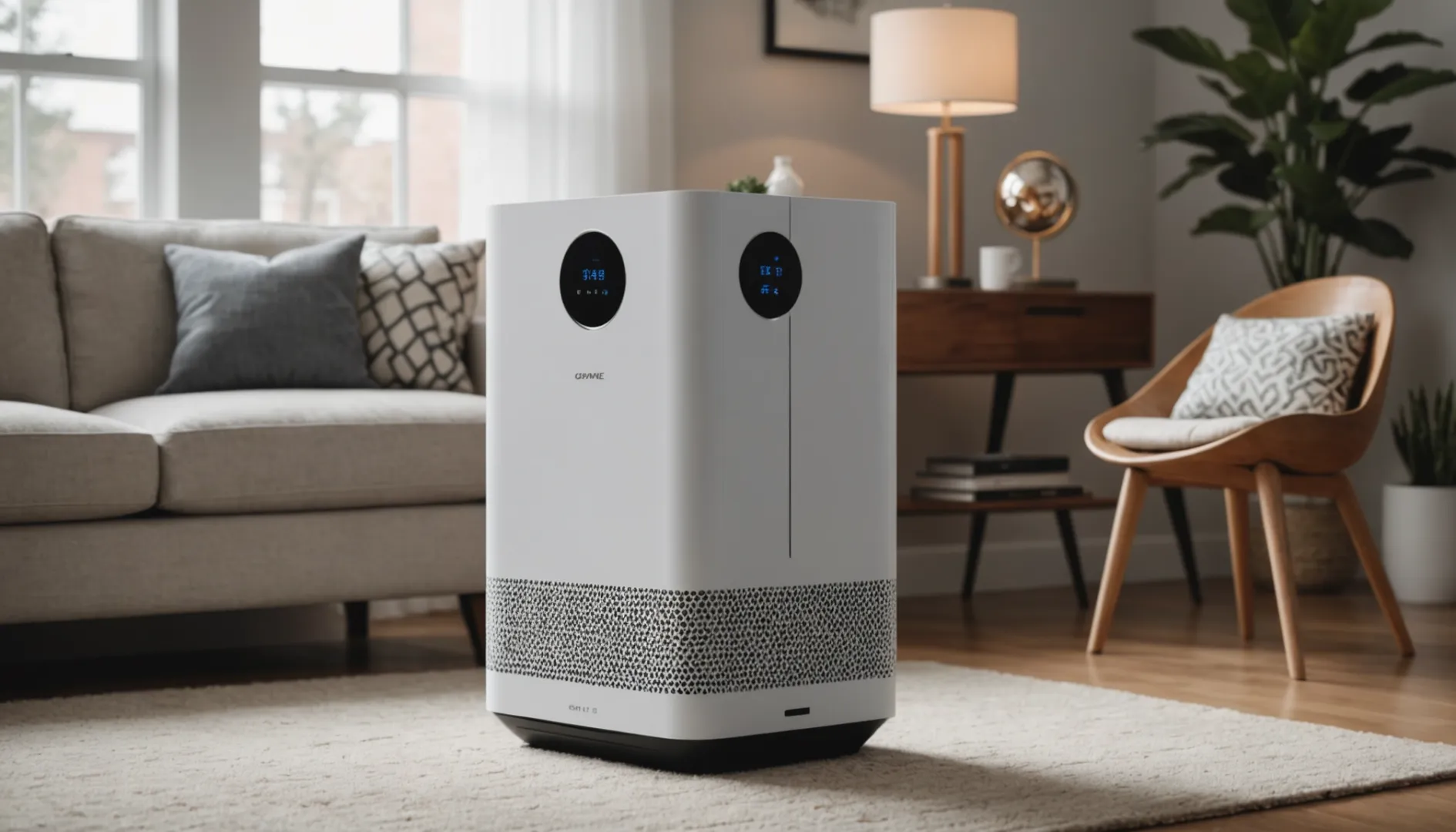
시장 수요 이해
공기청정기 제조업체는 맞춤화를 통해 주거용, 상업용, 의료용 등 다양한 시장 부문에 대응할 수 있습니다. 예를 들어 가정용 공기청정기는 미관과 조용한 작동을 우선시하는 반면, 의료용 기기는 여과 효율을 극대화하는 데 중점을 둘 수 있습니다. 이러한 각기 다른 요구 사항에 맞게 제품을 맞춤화함으로써 제조업체는 솔루션이 소비자의 요구를 효과적으로 충족할 수 있습니다.
기술 발전 수용
제조의 유연성은 원격 모니터링 및 제어를 가능하게 하는 IoT 지원 기능과 같은 최첨단 기술을 통합할 수 있게 해줍니다. 소비자가 점점 더 스마트한 솔루션을 요구함에 따라 이러한 적응은 매우 중요합니다. 예를 들어, 다음을 통합하는 제조업체는 공기청정기의 IoT 기술3 는 사용자가 스마트폰을 통해 실시간으로 공기질을 추적하고 설정을 조정할 수 있는 기능을 제공합니다.
환경 규제에 적응하기
지역마다 환경 기준과 규정이 다릅니다. 맞춤화는 시장 진입과 지속 가능성에 필수적인 현지 법률 준수를 보장합니다. 예를 들어, 일부 지역에서는 더 엄격한 규제로 인해 현지 대기질 요건을 충족하기 위해 특정 필터나 기술을 사용해야 할 수 있습니다.
사용자 경험 향상
사용자 지정 옵션을 제공하는 제조업체는 소음 수준이나 에너지 효율과 같은 개인 선호 사항을 해결하여 사용자 경험을 크게 향상시킬 수 있습니다. 맞춤형 인터페이스를 통해 소비자는 자신의 라이프스타일에 가장 적합한 모드를 선택할 수 있어 만족도와 제품 충성도를 높일 수 있습니다.
새로운 트렌드에 대응하기
생산 공정의 유연성은 새로운 트렌드와 기술에 민첩하게 대응할 수 있다는 의미이기도 합니다. 예를 들어 친환경 제품에 대한 수요가 증가함에 따라 지속 가능한 소재를 정수기에 신속하게 통합할 수 있는 제조업체가 경쟁 우위를 점하게 될 것입니다. 다음 사항에 대한 이해와 적응 제조 분야의 지속 가능한 소재4 환경을 생각하는 소비자를 끌어들이는 혁신적인 제품 디자인으로 이어질 수 있습니다.
공기청정기 제조업체는 맞춤화와 유연성을 운영에 통합함으로써 현재의 수요를 충족할 뿐만 아니라 미래의 트렌드를 예측하여 시장에서 지속적인 관련성과 성공을 보장할 수 있습니다.
공기청정기의 IoT 기술로 실시간 모니터링이 가능합니다.True
IoT 기능을 통해 사용자는 공기질을 추적하고 원격으로 설정을 조정할 수 있습니다.
공기청정기의 사용자 지정은 현지 환경법을 무시합니다.False
사용자 지정으로 다양한 지역 환경 표준을 준수할 수 있습니다.
제조업체를 선택할 때 품질 및 인증 표준은 어떤 역할을 하나요?
품질 및 인증 표준은 제조업체의 신뢰성과 안전성을 결정하는 데 매우 중요합니다.
품질 및 인증 표준은 제조업체가 안전, 성능 및 환경 영향에 대한 업계 벤치마크를 충족하도록 보장합니다. 이러한 표준에는 다음과 같은 것들이 포함됩니다. ISO 인증 및 제3자 실험실 검증을 통해 구매자는 고품질의 규정을 준수하는 제품을 생산하기 위해 노력하는 신뢰할 수 있는 제조업체를 식별할 수 있습니다. 선택 과정에서 이러한 표준을 우선시하면 제품 신뢰성과 소비자 신뢰를 확보할 수 있습니다.
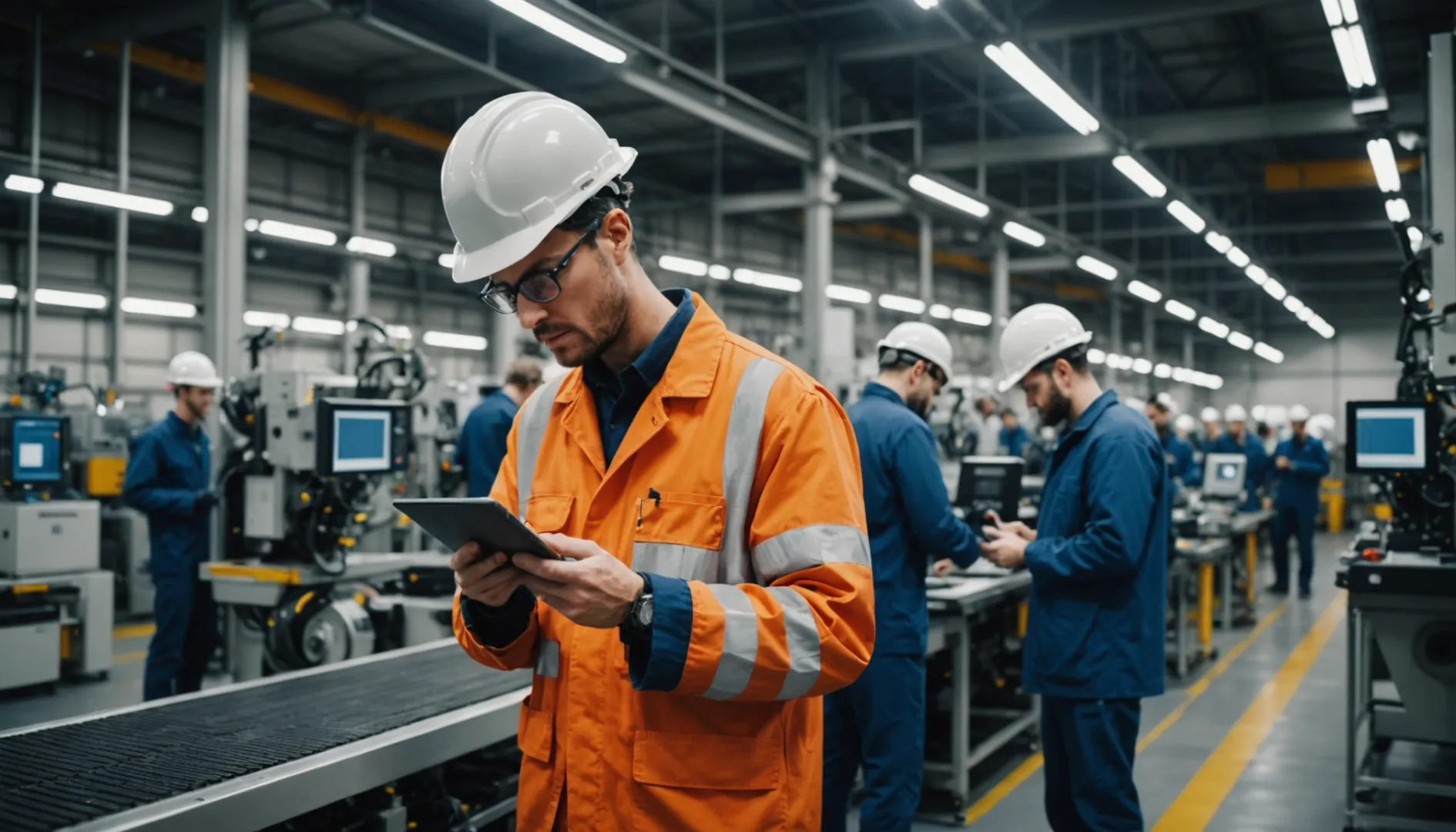
제조 분야의 품질 표준 이해
품질 표준은 제품 성능과 안전에 대한 기준을 설정하기 때문에 매우 중요합니다. 이러한 표준을 준수하는 제조업체는 생산 공정 전반에 걸쳐 일관된 품질을 유지하려는 노력을 보여줍니다. 널리 알려진 표준 중 하나는 ISO 품질 관리 시스템에 중점을 둔 9001을 준수합니다. 이러한 표준을 준수하면 제조업체는 효율적인 프로세스를 구현하여 지속적으로 품질을 개선할 수 있습니다.
또한 다음과 같은 표준이 적용됩니다. ISO 140015 환경 관리를 강조하여 제조 관행이 지속 가능하고 환경 친화적인지 확인합니다. 이는 제품의 환경적 영향이 중요한 공기 정화 같은 산업에서 특히 중요합니다.
인증 표준의 중요성
인증 표준은 제품이나 프로세스가 특정 요구 사항을 충족한다는 제3자의 검증 역할을 합니다. 인증은 특정 시장이나 부문에 진출하기 위한 전제 조건이 되는 경우가 많습니다. 예를 들어, 다음의 인증은 UL 또는 Intertek6 제품의 안전성 및 규제 표준 준수 여부에 대한 테스트를 거쳤음을 확인합니다. 이러한 인증은 소비자가 구매하는 제품이 안전하고 신뢰할 수 있다는 확신을 줍니다.
공기 정화에서는 에너지 스타 등급과 같은 에너지 효율 및 안전과 관련된 인증이 중요한 역할을 합니다. 이러한 인증은 제품이 정부 및 산업 규정을 충족할 뿐만 아니라 운영 비용과 환경 발자국을 줄이는 데도 도움이 됩니다.
품질에 전념하는 제조업체 선택
제조업체를 선택할 때는 품질 및 인증 표준에 대한 실적을 평가하는 것이 중요합니다. 강력한 품질 관리 프로세스를 갖춘 제조업체는 결함이 적고 고객 만족도가 높을 가능성이 높습니다.
많은 제조업체가 다음과 같은 타사 연구소와 긴밀히 협력합니다. SGS 또는 TUV 를 통해 필요한 인증을 원활하게 획득할 수 있습니다. 이러한 협력은 품질 보증 및 규정 준수에 대한 사전 예방적 접근 방식을 나타내며, 이를 통해 제품 고장이나 리콜과 관련된 위험을 크게 완화할 수 있습니다.
비용과 품질 보증의 균형 맞추기
품질을 우선시하는 것도 중요하지만, 비용에 미치는 영향을 고려하는 것도 그에 못지않게 중요합니다. 엄격한 품질 기준을 충족하는 제품을 제공하는 제조업체는 생산 비용이 높아질 수 있으며, 이는 제품 가격 상승으로 이어질 수 있습니다. 하지만 반품, 보증 클레임 감소, 브랜드 평판 향상 등의 장기적인 이점이 초기 비용 절감보다 더 큰 경우가 많습니다.
따라서 제조업체를 선택할 때는 비용과 품질 보증의 균형을 맞추는 것이 중요합니다. 경쟁력 있는 가격을 제공할 뿐만 아니라 운영의 모든 측면에서 고품질 표준과 규정 준수를 유지하는 파트너를 선택하세요.
ISO 9001은 일관된 품질 관리를 보장합니다.True
ISO 9001은 품질 관리 시스템에 중점을 두어 일관된 품질을 보장합니다.
에너지 스타 등급은 공기 정화와는 무관합니다.False
에너지 스타 등급은 공기 정화에 중요한 에너지 효율을 보장합니다.
투명한 커뮤니케이션을 통해 제조업체와의 파트너십을 어떻게 강화할 수 있을까요?
투명한 커뮤니케이션은 제조업체와의 성공적인 파트너십을 위한 초석이며, 상호 신뢰와 효율성을 보장합니다.
투명한 커뮤니케이션은 신뢰를 조성하고, 목표를 일치시키고, 오해를 줄이고, 원활한 프로젝트 실행을 촉진하여 제조업체 파트너십을 강화합니다.
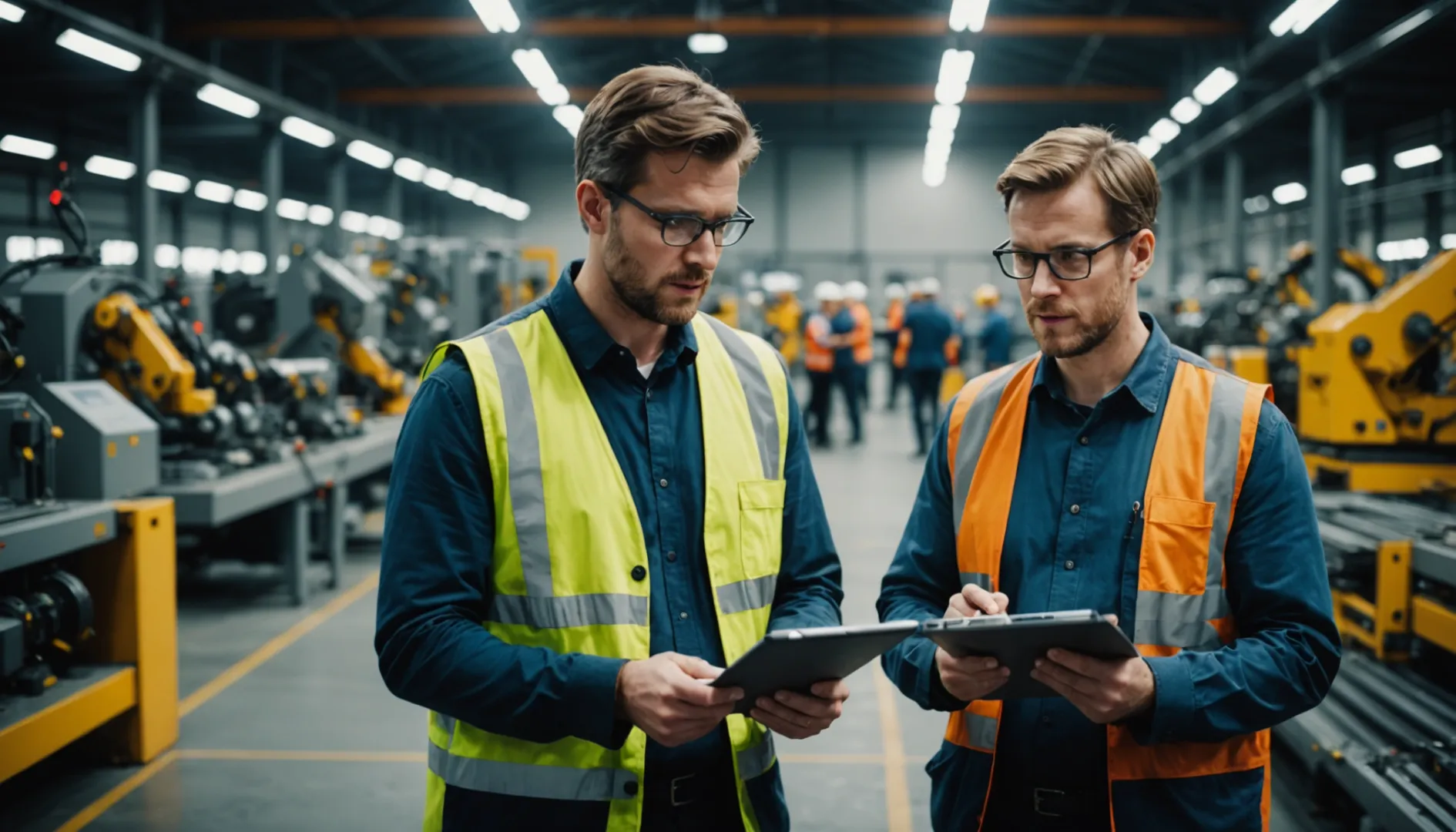
명확성을 통한 신뢰 구축
투명한 커뮤니케이션은 고객과 고객 간의 신뢰를 구축하는 데 있어 기본입니다. 제조업체 파트너7. 양측이 기대치, 일정, 잠재적인 문제점에 대해 명확히 알고 있을 때 신뢰할 수 있는 파트너십의 토대가 마련됩니다. 신뢰는 제품의 품질뿐만 아니라 각 상호 작용의 정직성과 개방성을 바탕으로 구축됩니다.
예를 들어, 생산 일정과 잠재적인 지연 가능성을 공개적으로 공유하는 제조업체는 더 나은 계획을 세우고 고객의 기대치를 효과적으로 관리할 수 있습니다. 이러한 수준의 투명성을 통해 예상치 못한 상황이 발생하지 않고 모든 당사자가 처음부터 같은 정보를 공유할 수 있습니다.
목표와 기대치 조정하기
제조업체와 명확한 커뮤니케이션 라인이 있으면 목표를 조정하는 것이 훨씬 쉬워집니다. 양측 모두 현실적인 목표를 설정하고 이를 달성하는 데 필요한 작업 범위를 이해할 수 있습니다. 이러한 조율은 기대치 불일치나 잘못된 의사소통으로 인한 프로젝트 탈선 위험을 줄여줍니다.
다음과 같은 시나리오를 생각해 보겠습니다. 맞춤형 공기 청정기8 솔루션을 제공합니다. 제조업체는 고객의 요구 사항을 투명하게 논의함으로써 실현 가능성, 잠재적 비용 및 일정에 대한 인사이트를 제공하여 고객이 정보에 입각한 결정을 내리는 데 도움을 줄 수 있습니다.
오해와 오류 줄이기
오해는 종종 프로젝트 지연과 비용 증가의 근본 원인입니다. 투명한 커뮤니케이션은 모든 지침과 기대치를 명확히 이해하도록 함으로써 이러한 위험을 최소화합니다. 정기적인 업데이트와 피드백 루프를 통해 잠재적인 문제를 조기에 파악하여 작은 문제가 큰 장애로 발전하기 전에 수정 조치를 취할 수 있습니다.
화상 통화나 서면 보고서를 통해 정기적으로 체크인 또는 업데이트를 실시하는 것도 유용한 방법입니다. 이러한 세션을 통해 양 당사자는 의심스러운 점을 즉시 명확히 하고 프로젝트를 순조롭게 진행할 수 있습니다.
원활한 프로젝트 실행 촉진
마지막으로, 투명한 커뮤니케이션은 원활한 프로젝트 실행을 촉진하는 데 중요한 역할을 합니다. 양측이 열린 대화를 유지하면 아이디어를 자유롭게 교환하고 개선 사항을 신속하게 구현할 수 있는 협업 분위기가 조성됩니다.
이러한 접근 방식은 시장 수요가 빠르게 변화하는 역동적인 산업에서 특히 유용합니다. 제조업체와의 투명한 관계를 통해 제품 품질이나 배송 일정에 영향을 주지 않으면서 변화에 신속하게 적응할 수 있습니다.
결론적으로, 투명한 커뮤니케이션은 단순히 정보를 교환하는 것이 아니라 성공을 이끄는 협업 환경을 조성하는 것입니다. 명확성과 개방성을 우선시하면 제조업체와의 파트너십뿐만 아니라 고객에게 제공되는 최종 제품의 품질도 향상됩니다.
투명한 커뮤니케이션은 프로젝트 지연을 줄여줍니다.True
오해의 소지를 최소화하여 선제적으로 문제를 해결할 수 있습니다.
잘못 정렬된 목표는 파트너십에 영향을 미치지 않습니다.False
목표가 잘못 조정되면 서로 다른 기대치로 인해 프로젝트가 탈선할 수 있습니다.
결론
이러한 인사이트를 참고하여 공기질 요구사항에 맞는 제조업체를 선택함으로써 보다 건강한 생활 공간 또는 업무 공간을 확보하세요.
-
HEPA 필터가 집안의 공기질을 개선하는 방법을 살펴보세요: 고효율 미립자 공기를 의미하는 HEPA 필터는 꽃가루, 애완 동물 비듬, 연기 및 집먼지 진드기와 같은 작고 유해한 입자를 강제로 포집하여 공기를 ... ↩
-
의료 환경에서 UV-C 필터가 선호되는 이유를 알아보세요..: 이 기술은 정수, 공기 여과, 호흡기 마스크, 의료 시설 등에 사용됩니다. 99.9% 이상의 공기 매개 미생물을 죽입니다 ... ↩
-
IoT 기술이 공기청정기의 기능을 향상시키는 방법을 알아보세요: 지능형 예약 및 자동화 기능 덕분에 IoT 지원 공기청정기는 에너지 사용을 개선하여 전기 소비를 줄입니다 ... ↩
-
친환경 소재를 제품 디자인에 통합하는 방법 알아보기..: 레이크에어 공기청정기는 60% 이상의 재활용 소재로 만들어집니다. 일반적인 가정용 공기청정기는 대부분 플라스틱으로 만들어집니다. ↩
-
ISO 14001 인증으로 환경적 책임을 강화하는 방법을 알아보세요: ISO 14001 인증이 비용 절감, 폐기물 관리 프로세스 개선 및 효율성 향상을 통해 제조 비즈니스에 어떤 이점을 제공하는지 알아보세요 ... ↩
-
UL 또는 Intertek 인증이 제품 안전을 보장하는 이유를 알아보십시오: Intertek은 식품, 화학, 화장품, ... 등 다양한 산업 분야의 재료를 다루는 실험실 테스트 서비스입니다. ↩
-
투명성이 제조업체와의 관계에서 신뢰를 구축하는 방법을 알아보세요: 신뢰는 우리가 무엇을 할 것인지 말하고, 그 이유를 공유하며, 약속한 것을 투명하게 전달함으로써 얻을 수 있습니다.... ↩
-
제조 파트너십에서 목표 조정이 중요한 이유를 이해하세요: 동일한 목표를 달성하면 직장 분위기가 밝아지고 직원 참여도가 높아지며 갈등이 줄어듭니다. 하지만 대부분 ... ↩


